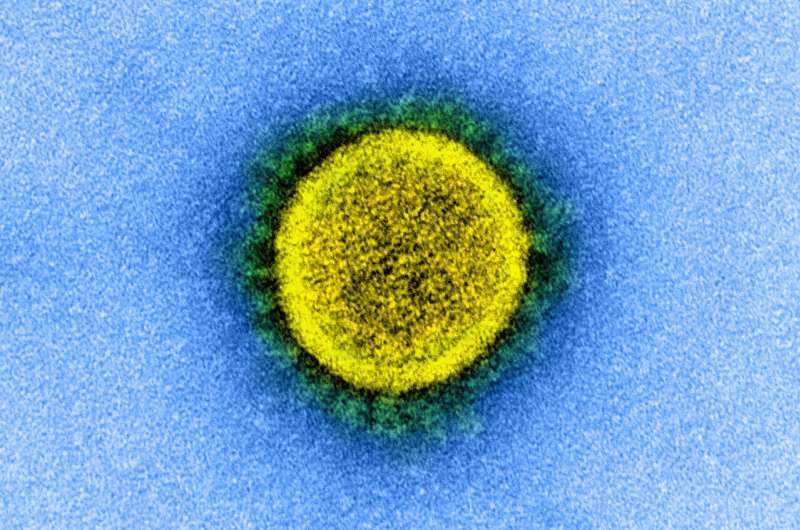SARS-CoV-2 (shown here in an electron microscopy image). Credit: National Institute of Allergy and Infectious Diseases, NIH
A team of researchers affiliated with several institutions in Israel has found evidence that suggests healthcare workers are more likely to become infected with COVID-19 at home than on the job. They have published a paper on the open-access JAMA Network Open describing the results of surveys they conducted at Hadassah Medical Center.
As the global pandemic has continued, the general public has become aware of the sacrifices that healthcare workers have made to treat people with COVID-19 and to save lives. Over time, risks have been reduced by vaccines and protective gear. In this new effort, the researchers have found that as a result, healthcare workers are now more likely to become infected at home than at work, when they are not wearing their protective gear.
The work involved surveying all of the employees at Hadassah Medical Center back in March, before the delta variant arrived on the scene. At that time 5,312 medical center employees had received both doses of the Pfizer vaccine, while 690 had not.
The researchers found that 15 of the vaccinated employees had been infected after exposure to an infected person in their home, while 12 had become infected at work. They found also that eight of the infected vaccinated employees worked in a department where patients were being treated for COVID-19, though only two of those infections could be tied to their workplace. The researchers also found that 69 of the unvaccinated workers were infected.
The researchers suggest that the reason healthcare workers are more likely to be infected at home is because they do not wear protective gear there, and because the chances of becoming infected by someone nearby is greater in the home because it is such a closed environment where people are in close proximity. They suggest healthcare workers exposed to COVID-positive people at home be quarantined immediately. They also note that only one vaccinated infected worker needed to be hospitalized and no workers had died whether they had been vaccinated or not.
More information: Yonatan Oster et al, Association Between Exposure Characteristics and the Risk for COVID-19 Infection Among Health Care Workers With and Without BNT162b2 Vaccination, JAMA Network Open (2021). DOI: 10.1001/jamanetworkopen.2021.25394
Journal information: JAMA Network Open
© 2021 Science X Network
























